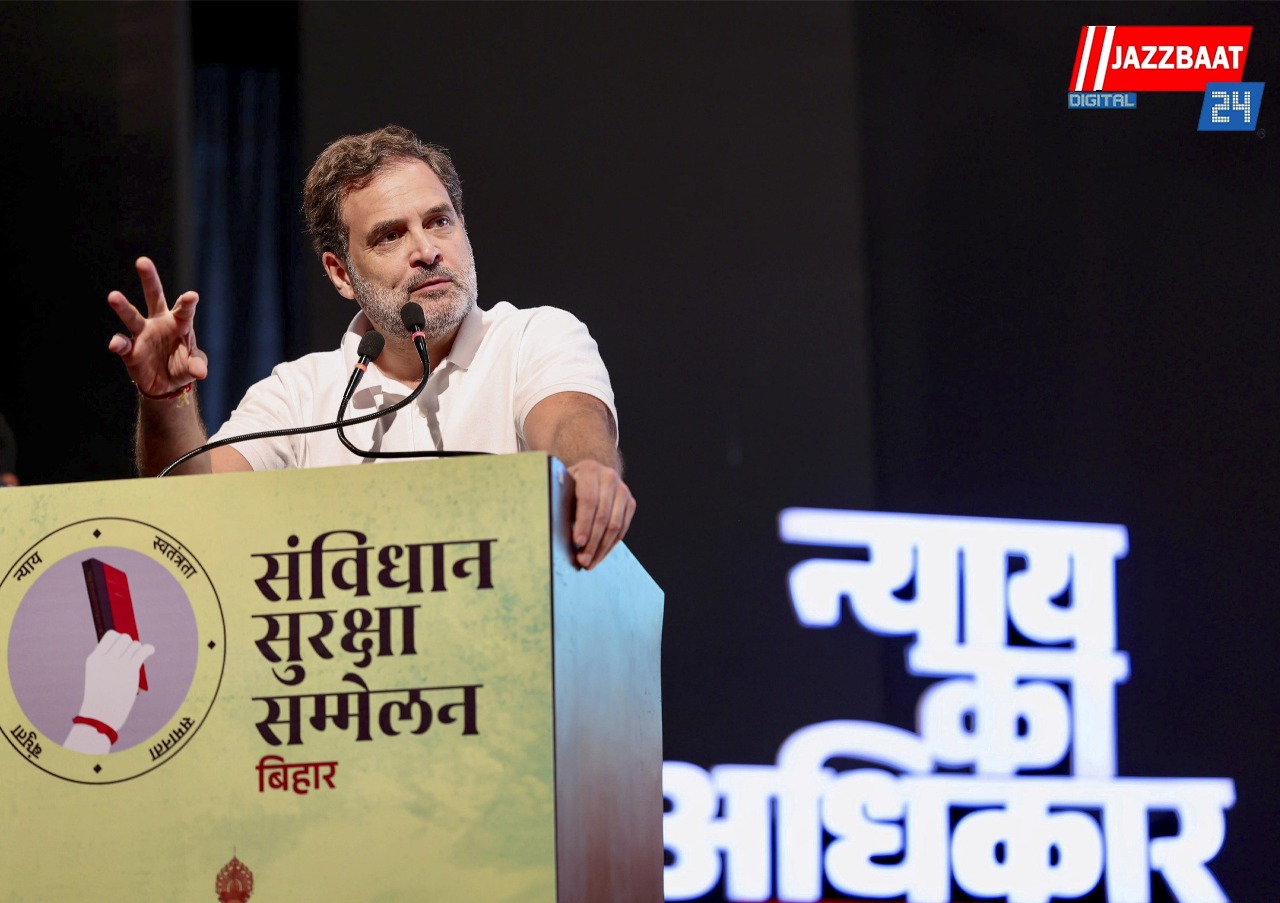
New Delhi:
Congress leader Rahul Gandhi, in a strong critique of Bihar’s current administration, claimed on Monday, 14 July that the state has descended into lawlessness, branding it the “crime capital of India.” He alleged that Chief Minister Nitish Kumar is preoccupied with retaining his own seat while BJP ministers engage in corrupt practices.
Gandhi made the remarks in a post on X, sharing screenshots of media reports indicating 31 murders in 11 days and pointing to what he termed a burgeoning “contract killing industry” in Bihar.
In Hindi, he asserted:
“Bihar has become the ‘crime capital of India’ — fear in every alley, unease in every home! Unemployed youth are being turned into killers by ‘GuNDA raj’.”
“The CM is busy saving his seat, while BJP ministers are raking in commissions. I’m repeating again this time, the vote is not just to change the government, but to save Bihar.”
Rahul Gandhi’s remarks come in the aftermath of the high-profile murder of businessman Gopal Khemka in Patna on 4 July, which had already ignited political backlash. He had earlier linked the murder to a failure of governance, accusing the alliance led by Nitish Kumar, of rendering Bihar a hotbed of crime.
BJP and JD(U) leaders have dismissed Gandhi’s statements as election tactics, while Deputy Chief Minister Samrat Choudhary labelled his visit a political stunt. Meanwhile, a Special Investigation Team (SIT) has been established to investigate the Khemka murder, which occured near a heavily monitored area of Patna.
The Congress leader urged Bihar’s electorate to use the upcoming assembly polls not merely as a vote against the ruling alliance, but as a means to protect the state itself. “This time, the vote is not just to change the government, but to save Bihar,” he emphasised.
Political analysts note that Bihar is heading into a crucial election period, with voter roll revisions and law and order concerns dominating the public discourse. The Special Intensive Revision (SIR) of electoral rolls earlier became a flashpoint with opposition parties alleging manipulation.
With allegations of rising crime and compromised governance forming the backdrop to the election season, Rahul Gandhi’s charge positions the issue of safety at the heart of his campaign. His call for a “new Bihar” where “there is no fear, only progress” underscores the broader electoral messaging challenging the current state leadership.
As campaigning intensifies ahead of the polls expected in October–November, both sides appear intent on framing the narrative, whether through indicting administrative failures or deflecting criticism as political opportunism. The unfolding developments will likely be examined closely in subsequent courts, public forums, and media coverage.